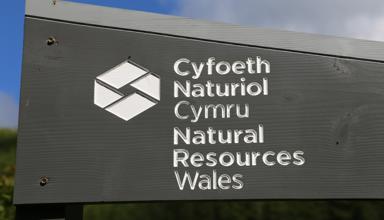This is the fourth article of our ten-part series looking at the Welsh Government’s progress in delivering its Programme for Government (PfG). Here, we explore progress made against the well-being objective to “Build a stronger, greener economy as we make maximum progress towards decarbonisation”.
There are 12 specific commitments beneath this Cabinet-wide objective, which the Welsh Government has given an update on in its PfG annual report. There are also relevant Ministerial commitments.
Browse our full #ProgrammeforGovernment series, published to date.
The majority of the Welsh Government's commitments under this objective fall within two economic sectors; transport and agriculture. These are areas where it has powers and policy levers to reduce carbon emissions.
Change of direction on transport plans
The Welsh Government’s previous plans for wide ranging reforms to public transport, were ultimately narrowed in scope to a Bus Services (Wales) Bill introduced in March 2020, only to be withdrawn when the pandemic hit.
This gave the Welsh Government the opportunity to rethink the changes needed for a stronger and greener public transport system.
A modern legislative basis for transport in Wales
Reforms to local transport governance have come in the form of the Local Government and Elections (Wales) Act 2021 which, amongst other things, established Corporate Joint Committees (CJCs). The initial functions of the four CJCs include production of regional transport plans, replacing local transport plans.
Plans to reform both local bus services and taxi and private hire vehicle (PHV) regulation are underway. The last Senedd’s Economy, Infrastructure and Skills Committee heard evidence that previous proposals for taxi and PHVs did not go far enough, in particular, in not addressing ‘cross-bordering’ – where licensed drivers, vehicles and operators can work outside their licensing district. This leads to concerns (raised by sections of the taxi and PHV industry) both about passenger safety and enforcement, as well as driver income and oversupply of vehicles. A new White Paper, published earlier this year, promises to address cross-bordering along with wider licensing reforms.
The Welsh Government consulted on a new approach to delivery of bus services in spring 2022, which would see mandatory, Wales-wide, bus franchising introduced. It proposes the Welsh Ministers act as the franchising authority, with key roles for CJCs and Transport for Wales (TfW) in planning the network. It would also permit local authorities to establish new municipal bus companies, and relax restrictions on existing municipal companies.
While the bus industry seems more accepting of the need to reform than it was prior to the pandemic, stakeholders remain concerned particularly around the franchising model and how it would be funded.
The recent legislative statement (June 2023) said bus reform legislation will be introduced in 2023-24. The First Minister also restated the intention to legislate on taxi and PHV reform during this Senedd.
Overarching transport strategy and stretching goals
The Welsh Government has committed to implement its Wales Transport Strategy (2021) to change the way we travel. It sets out transport ambitions for the next 20 years, and three headline priorities for the first five years:
- bring services to people in order to reduce the need to travel;
- allow people and goods to move easily from door to door by accessible, sustainable and efficient transport services and infrastructure; and
- encourage people to make the change to more sustainable transport.
It’s early days for monitoring progress in delivery of the strategy. TfW is taking the lead and has developed a monitoring framework comprising six key measures and 27 subsidiary measures. Baseline data are currently available, and TfW promises to publish annual updates from 2023.
The National Transport Delivery Plan (NTDP) 2022-27 sets out the programmes, projects and policies the Welsh Government will use to deliver the Strategy.
The NTDP includes commitments on fares and ticket integration, including:
…investing in infrastructure, services, integrated journey planning, simpler fares, tickets and timetables. We want to improve accessibility, involve users in service design and improve affordability through our commitment to explore ‘Fairer Fares’ across Wales.
TfW’s 2023-24 business plan includes commitments around fare reform and integrated ticketing. However, the Deputy Minister told the Climate Change, Environment and Infrastructure (CCEI) Committee in March that his ambitions for “a flat £1 bus fare” have been frustrated by lack of funding.
Sustainable modes are essentially public transport or active travel, but the Welsh Government wants more stretching goals set where possible.
A number of policies aimed at supporting a shift to sustainable modes are progressing. The Welsh Government is implementing recommendations from the independent Roads Review Panel which fundamentally changes its approach to investment in roads. The default speed limit on restricted roads in Wales is reducing from 30mph to 20mph this month – a policy aimed to make roads safer for active travel. Both policies have generated strong reactions.
TfW is leading the development of Metro systems across Wales, and Welsh Government expenditure on active travel has also increased in recent years from £8.08 per capita in 2018/19, to £20.60 in 2023/24.
However, as the charts below show bus and rail passenger numbers remain stubbornly low following their collapse during the pandemic.
Number of rail passenger journeys for Wales
Source: Regional rail usage, Office of Rail and Road
Number of passenger journeys on local bus services in Wales
Source: StatsWales
Welsh Government data also show relatively little change in rates of walking and cycling.
In April 2023, passenger watchdog Transport Focus called for TfW to “to urgently deliver a more reliable rail service after months of disruption for passengers”. Transport Focus wrote to TfW on 20 April expressing concern, saying rail users had put TfW in “joint bottom place for overall satisfaction” among rail franchises in Great Britain. Following fires on TfW trains the rail regulator also issued an improvement notice to TfW in March, citing failure to ensure passengers are “not exposed to the risk of harm”.
Bus services have come under financial pressure. In February, it became clear that £28m assigned to continue the Bus Emergency Scheme was at risk. An agreement was reached between the Welsh Government, local authorities, TfW and the industry in June, on funding for a new Bus Transition Fund. However, some local authorities remain concerned.
TfW is coordinating the delivery of the 58 recommendations of Lord Burns and the South East Wales Transport Commission (November 2020) on alternatives to the M4 relief road. TfW resources and supports the Burns Delivery Unit and Board which are implementing the recommendations, all of which have been incorporated into the new NTDP. The Commission report makes clear that enhancement and reconfiguration of the South Wales Main Line to increase rail capacity is key to the success of the proposals to improve M4 traffic flows.
However, rail infrastructure is a reserved matter. While the Welsh Government can invest in rail infrastructure it receives no block grant allocation, and Network Rail is accountable to the UK rather than the Welsh Government.
The success of the Burns Commission recommendations therefore depends on UK Government support.
A new system of farm support
Emissions from the agricultural sector are being addressed in the Agriculture (Wales) Act 2023, however the devil will be in the detail of the Sustainable Farming Scheme (SFS) for the success of future farming support.
The scheme is expected to reward farmers for actions contributing to ‘Sustainable Land Management’ (SLM). Its next iteration is due for consultation later in 2023, along with the scheme’s highly anticipated payment scales. The Welsh Government and stakeholders will aim to resolve key issues around support for:
- sustainable food production, and the resilience of agricultural businesses;
- climate change mitigation and adaptation;
- resilient ecosystems; and
- the conservation and enhancement of the countryside and cultural resources, public access, and the Welsh language.
The Welsh Government published its first draft of the Sustainable Farming Scheme in 2022 and has been working through a programme of co-design with the farming community. During the second half of this Senedd term all eyes will be on the final SFS consultation in anticipation of the scheme launch in 2025.
The Welsh Government has maintained the Basic Payment Scheme (BPS) system of support for farmers since EU exit. BPS payments are expected to be phased out between 2025 and 2029 as the new SFS is brought in from 2025, in efforts to avoid a ‘cliff-edge’.
The rural development pillar of the EU’s system of support ends in December 2023 following a phase out period. The Welsh Government has developed rural investment schemes to replace this programme. In July the Welsh Government announced a replacement for Glastir (a significant aspect of rural development support) called the ‘interim habitat scheme’ ahead of the SFS. The details are still to be worked out in time for the end of 2023 which NFU Cymru has described as a “cause of significant worry for thousands of farmers”.
First steps taken
There are further commitments aiming to meet this overarching objective of a strong, green economy, that haven’t been discussed here. The Welsh Government has published its Wales Infrastructure Investment Strategy to support a zero carbon economy, and an accompanying project pipeline. It’s also committed to delivering the Digital Strategy for Wales, and upgrading the digital and communications infrastructure.
Reforming Wales’ economy to be greener, but stronger, whilst focusing on maximum decarbonisation is no small feat. But it’s clear the Welsh Government has taken some important first steps.
Explore the Programme for Government, its objectives and commitments
- 1. Provide effective, high quality and sustainable healthcare
- 2. Protect, re-build and develop our services for vulnerable people
- 3. Build an economy based on the principles of fair work, sustainability and the industries and services of the future
- 4. Build a stronger, greener economy as we make maximum progress towards decarbonisation
- 5. Embed our response to the climate and nature emergency in everything we do
- 6. Continue our long-term programme of education reform, and ensure educational inequalities narrow and standards rise
- 7. Celebrate diversity and move to eliminate inequality in all of its forms
- 8. Push forward towards a million Welsh speakers, and enable our tourism, sports and arts industries to thrive
- 9. Make our cities, towns and villages even better places in which to live and work
- 10. Lead Wales in a national civic conversation about our constitutional future, and give our country the strongest possible presence on the world stage
Article by Lorna Scurlock, Andrew Minnis and Katy Orford, Senedd Research, Welsh Parliament








